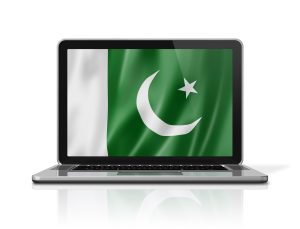People in Pakistan reported much slower internet over the past several days, with some experts on Monday estimating its speed falling to less than half its usual capacity at times.
The problem has affected millions of users, disrupting businesses and drawing nationwide complaints, while authorities have denied allegations that the installation of a national firewall was behind the slowdown.
Since February, users have been either unable to use social media or allowed limited access following a governmental crackdown before the February 8 parliamentary election. However, internet speed has now noticeably slowed down.
Users are unable to quickly send emails or use the messaging service WhatsApp, with businesspeople and doctors saying it has negatively affected their daily work, particularly receiving statements and medical reports.
Pakistan Software House Association, which represents companies specializing in information technology, said in a statement this week that the disruptions could cause a loss of $300 million to the country’s already fragile economy. The association also accused the government of “hastily implementing a national firewall,” leading to the slow connection.
Shahzad Arshad, an internet service provider in the eastern city of Lahore, said that businesses are suffering because they can’t contact international clients or are having trouble sending and receiving files.
Chaudhry Arif, who runs a software company in the capital, Islamabad, said the internet speed was from 40 percent to 80 percent slower than the previous week, with no signs of improvement.
On Sunday, Pakistan’s Minister for Information and Technology Shiza Fatima said the government wasn’t behind the slow internet and that no new restrictions have been placed. She said phones were slow to connect to cyberspace in some cases because of the use of virtual private networks, or VPNs.
Several people rejected Fatima’s explanation.
Umayr Hassan, a software engineer, said authorities should clearly state if connections will remain unstable due to security measures. “There should be some clarity by the government … some logical explanation, not saying the use of VPNs.”
The minister said authorities are “tirelessly trying” to find the root of the problem while acknowledging that the government was upgrading its system to improve cybersecurity.
Fareeha Aziz, a digital rights activist, wants the government to explain what caused the slow connection. “The government says it is not behind the slowdown of the internet. Then who did it?” she asked.
Pakistan has 110 million internet users, nearly half the country’s population.
Supporters of former Prime Minister Imran Khan heavily use social networks to campaign against the government of Prime Minister Shehbaz Sharif, who replaced Khan after a no-confidence vote in Parliament in 2022. Khan is in prison facing a slew of legal charges and the country has been in turmoil ever since.

































